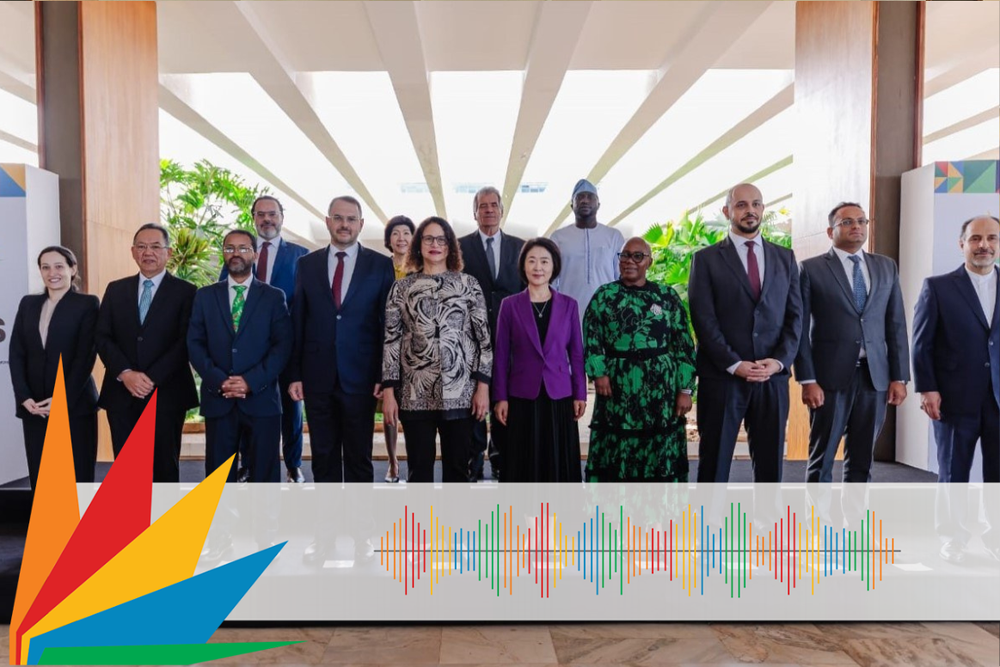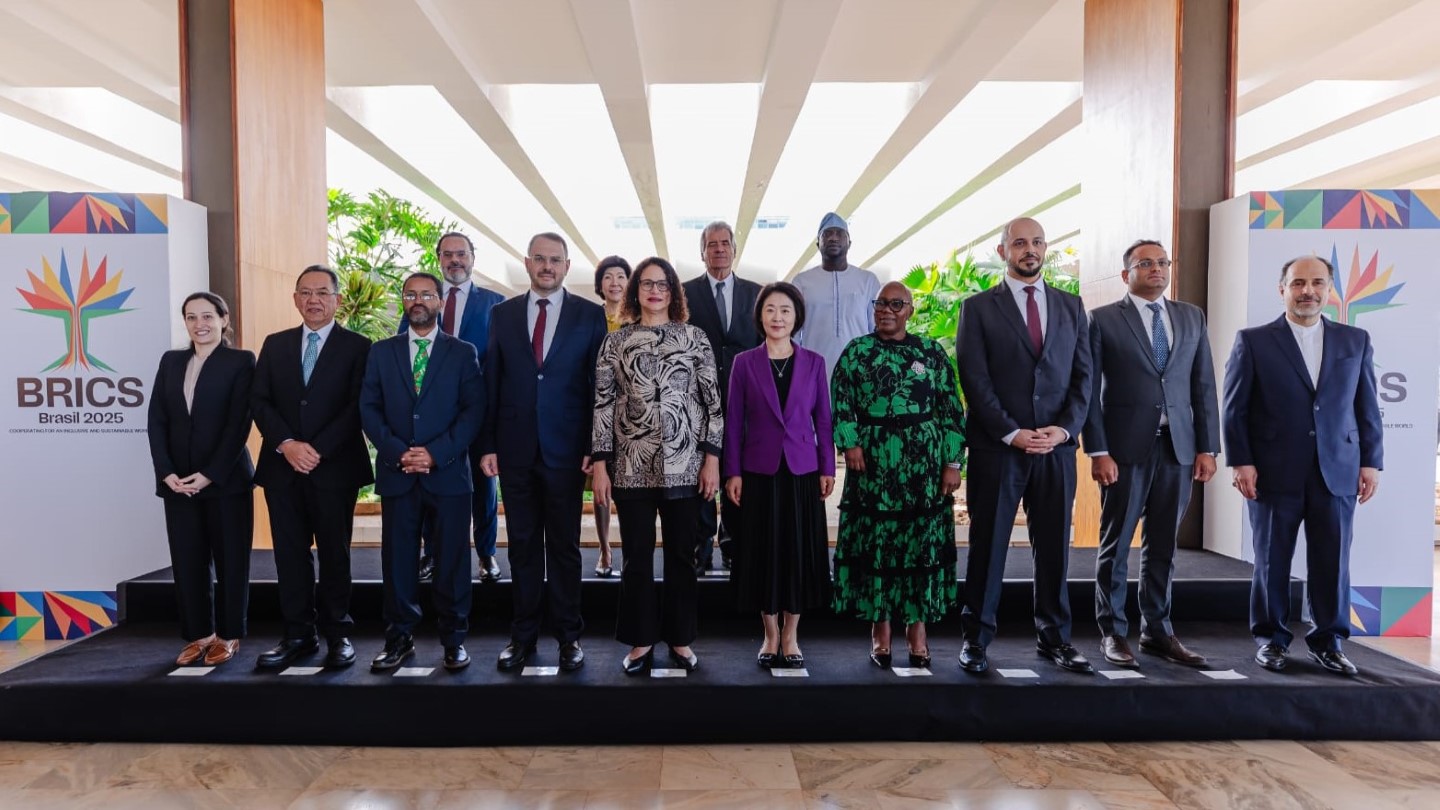BRICS Brasil Bulletin #17 - BRICS Champions Global South’s Role in Driving New Technologies and Innovation
The more equitable use of Artificial Intelligence (AI) is one such tool. The bloc plans to share infrastructure for more effective technological development and to create more accessible language models. Listen to the full report here.

Report: Mayara Souto/ BRICS Brasil
Voice-over: Nycolas Verly
Reporter: In tune with the present and the future, BRICS is writing a new chapter in science and technology—one in which the Global South takes center stage. This week, ministers from the bloc’s eleven member countries signed a landmark agreement: the Ministerial Declaration on Cooperation in Science, Technology, and Innovation, in Brasilia. And the goal is ambitious: to democratize access to technological tools and ensure that Artificial Intelligence is used fairly and inclusively. But why is this so important? Brasil’s Minister of Science, Technology and Innovation, Luciana Santos, explains.
Luciana Santos: “All new technologies can deepen existing inequalities among countries because they are powerful tools that reshape production methods and the very forces of production. We’re fighting to ensure that technology is not concentrated in the hands of a few, but shared. That’s why each of our countries is working to develop its own infrastructure to support AI development.”
Reporter: And here’s something worth noting: the minister warned of an invisible threat embedded in many AI models—cultural bias. Imagine a system that understands neither Brasil’s culture nor its history. That’s exactly the concern. But Brasil is already taking action. In the state of Piauí, the government launched “SoberanIA,” a Portuguese-language model with 100 billion parameters—a major leap toward Brazilian technological sovereignty. Here’s what the minister had to say:
Luciana Santos: “Bias alone already creates a cultural mismatch that does not reflect the context, culture, history, or way of life of each nation. So here in Brasil, we’re developing our own Portuguese-language models. We already have some powerful ones underway, like the SoberanIA initiative in Piauí, with its 100 billion parameters—clear proof that we are on the right path.”
Reporter: And there’s more: BRICS also launched the 2025–2030 Innovation Action Plan, with priorities ranging from clean energy to industrialization and green hydrogen. South Africa’s Deputy Minister of Trade, Industry and Competition, Nomalungelo Gina, delivered a pointed message: innovation is the engine of the future.
Nomalungelo Gina: “We’ve been sharing experiences on how we’re investing in the growth of innovation. Because when it comes to economic growth and stability, everything is built on innovation. Innovation helps us address energy challenges and climate-related issues like green hydrogen.” (FALA EM INGLÊS)
Reporter: And finally, a major milestone: 2025 marks ten years of BRICS cooperation in science and technology—a decade that proves when the Global South joins forces, technological revolution becomes a shared achievement.
English version by: Judas Tadeu de Azevedo Neto (POET/UFC)
Proofreading by: Kelvis Santiago do Nascimento (POET/UFC)
